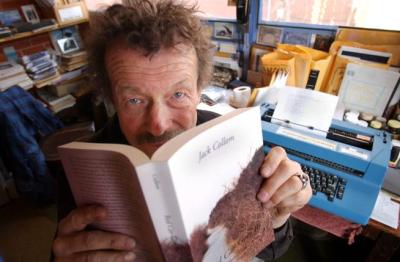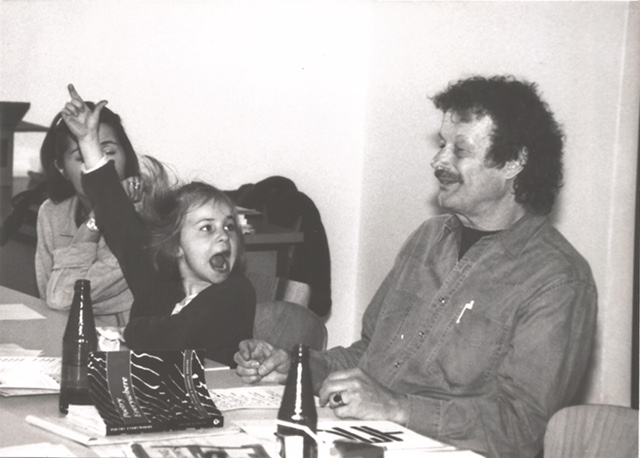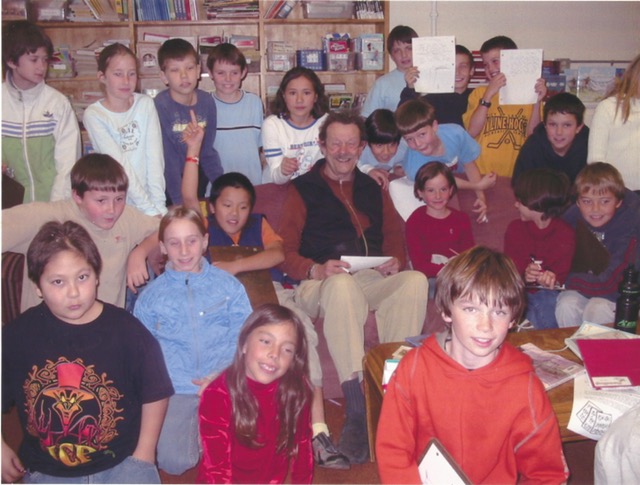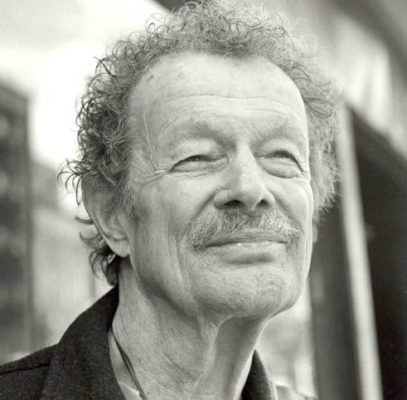
With both sadness and a big smile, those of us at T&W who worked with Jack Collom remember him and send condolences to his wife Jennifer Heath and his children and grandchildren. Jack died in early July at the age of 85 at his home in Colorado, where he was an adjunct professor at Naropa University, as well as a poet who worked in a variety of schools—a job that he relished in several states over five decades.
Our smiles come because, as much as any other poet who has taught poetry to children, Jack embodied the best of what it takes to do this job: he conveyed to kids his own deep love and understanding of poetry; he inspired kids to write and find their own voices; he listened to those voices and let what he heard inform his teaching; and he taught and wrote with joy, humor, and compassion. Jack taught for T&W in the New York City public schools and led many conferences for teachers.
My fondest memories of him, though, are the three years he taught in a program T&W sponsored in Salmon, Idaho. Two poets—Jack and Sheryl Noethe—plastered this small town with poetry. They worked in the schools; they had a radio program; they led citywide poetry readings; they published anthologies of their students’ writing; and they summarized their teaching ideas in a T&W book—Poetry Everywhere—still widely used by teachers across the country. What a thrill those of us in T&W’s offices back in NYC got when we received diaries from Jack and Sheryl recounting their experiences in what seemed like a foreign country.

It was, though, a perfect place for Jack who, in addition to being a teacher and poet, had a degree in forestry. He had pioneered a course in “Eco-Lit” at Naropa, and into all of his classes he brought a vibrant interest in the environment—seeing it and cherishing it and preserving it. I recall Jack sending us a long poem about his relationship with a mouse in his house in Salmon and speculating whether education should be about understanding the universe by learning every detail about the mouse or learning about the universe in order to appreciate the singularity of the mouse.
One of the most impressive books Jack wrote for T&W was his thoughtful analysis of children’s poetry in Moving Windows: Evaluating the Poetry Children Write. Jack collected literally thousands of poems children had written in response to exercises he shares in the book. He discusses what to look for in children’s work, including elements like energy, surprise, candidness, concision, shapeliness, etc. Education researchers liked Jack’s work and wanted to use it to set up “standards” that teachers could aim for when teaching poetry.
Jack loved life’s simple pleasures—if you spent time with Jack, you would go bird watching, shoot some pool, participate in writing a “group poem” over lunch, and listen to his (very good!) yodeling. He loved acrostics, and he would have kids write acrostics using the spine word “poem” or “poetry.” He collected these and other poems about poetry in an anthology called A Slow Flash of Light, published by T&W in 1998. So, for Jack, from one of his class collaborations:
P atterns blowing
O ver the flashlight
E ternity of happy
T imes, meticulously
R earranging
Y esterday’s dreams
About the Author:
Nancy Larson Shapiro is the former director of Teachers & Writers Collaborative and currently teaches poetry for Bloomingdale Aging in Place (BAiP).
Photo (top) by John Sarsgard

Nancy Larson Shapiro is an educator and arts administrator based in New York City. She was the director of Teachers & Writers Collaborative from 1982 to 2007. She has worked and spoken exhaustively to advance the literary arts and co-authored to book The Point: Where Teaching & Writing Intersect (Teachers & Writers Collaborative, 1983).



